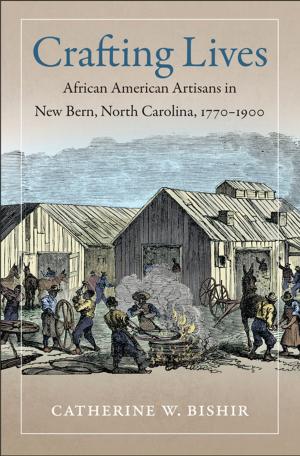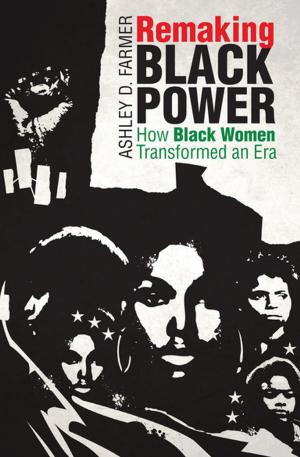The Sacred Mirror
Evangelicalism, Honor, and Identity in the Deep South, 1790-1860
Nonfiction, Religion & Spirituality, Christianity, Evangelism, History, Americas, United States, 19th Century| Author: | Robert Elder | ISBN: | 9781469627571 |
| Publisher: | The University of North Carolina Press | Publication: | March 2, 2016 |
| Imprint: | The University of North Carolina Press | Language: | English |
| Author: | Robert Elder |
| ISBN: | 9781469627571 |
| Publisher: | The University of North Carolina Press |
| Publication: | March 2, 2016 |
| Imprint: | The University of North Carolina Press |
| Language: | English |
Most histories of the American South describe the conflict between evangelical religion and honor culture as one of the defining features of southern life before the Civil War. The story is usually told as a battle of clashing worldviews, but in this book, Robert Elder challenges this interpretation by illuminating just how deeply evangelicalism in Methodist, Baptist, and Presbyterian churches was interwoven with traditional southern culture, arguing that evangelicals owed much of their success to their ability to appeal to people steeped in southern honor culture. Previous accounts of the rise of evangelicalism in the South have told this tale as a tragedy in which evangelicals eventually adopted many of the central tenets of southern society in order to win souls and garner influence. But through an examination of evangelical language and practices, Elder shows that evangelicals always shared honor's most basic assumptions.
Making use of original sources such as diaries, correspondence, periodicals, and church records, Elder recasts the relationship between evangelicalism and secular honor in the South, proving the two concepts are connected in much deeper ways than have ever been previously understood.
Most histories of the American South describe the conflict between evangelical religion and honor culture as one of the defining features of southern life before the Civil War. The story is usually told as a battle of clashing worldviews, but in this book, Robert Elder challenges this interpretation by illuminating just how deeply evangelicalism in Methodist, Baptist, and Presbyterian churches was interwoven with traditional southern culture, arguing that evangelicals owed much of their success to their ability to appeal to people steeped in southern honor culture. Previous accounts of the rise of evangelicalism in the South have told this tale as a tragedy in which evangelicals eventually adopted many of the central tenets of southern society in order to win souls and garner influence. But through an examination of evangelical language and practices, Elder shows that evangelicals always shared honor's most basic assumptions.
Making use of original sources such as diaries, correspondence, periodicals, and church records, Elder recasts the relationship between evangelicalism and secular honor in the South, proving the two concepts are connected in much deeper ways than have ever been previously understood.















